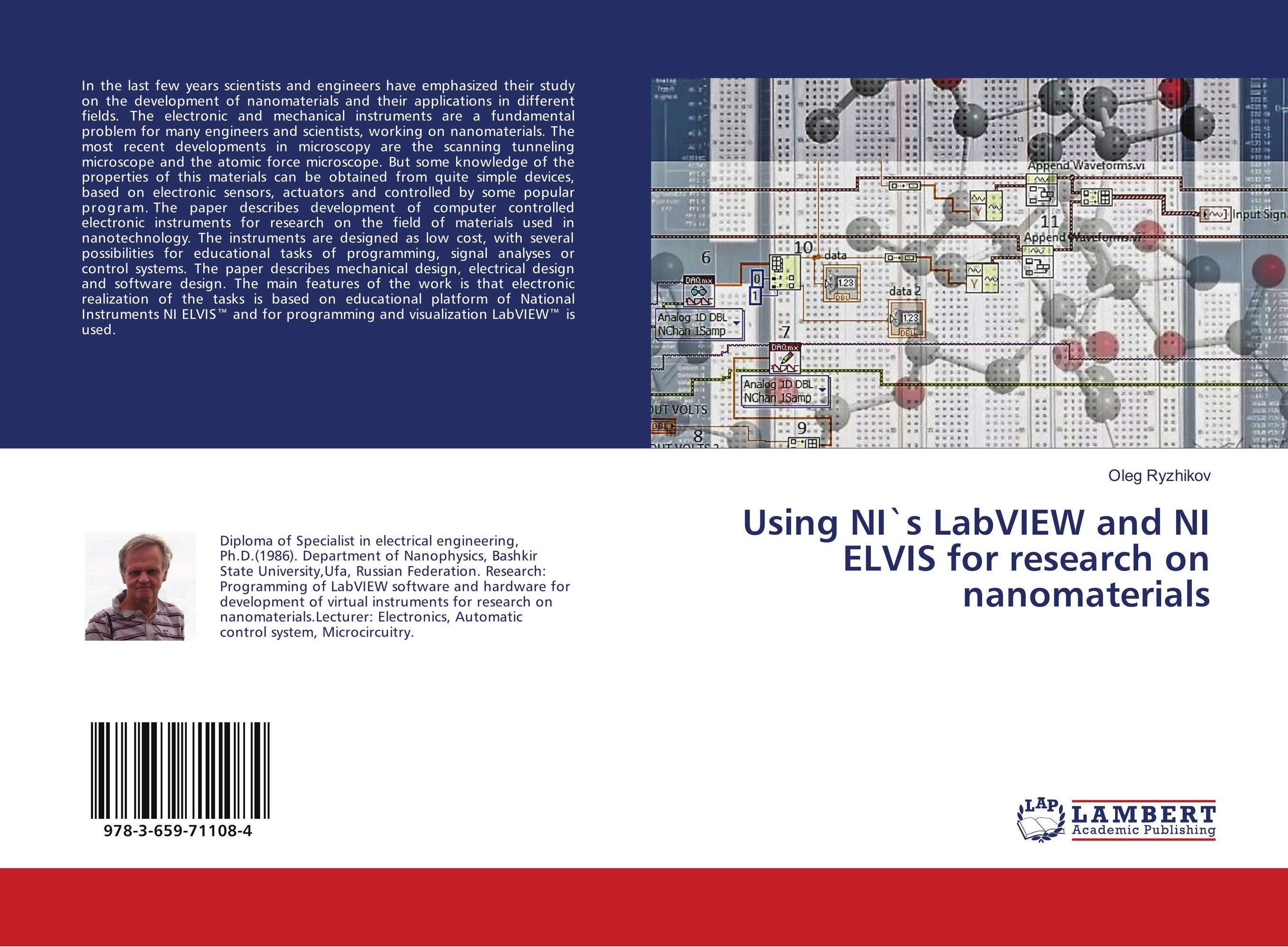| Поиск по каталогу |
|
(строгое соответствие)
|
- Профессиональная
- Научно-популярная
- Художественная
- Публицистика
- Детская
- Искусство
- Хобби, семья, дом
- Спорт
- Путеводители
- Блокноты, тетради, открытки
Using NI`s LabVIEW and NI ELVIS for research on nanomaterials.

В наличии
| Местонахождение: Алматы | Состояние экземпляра: новый |

Бумажная
версия
версия
Автор: Oleg Ryzhikov
ISBN: 9783659711084
Год издания: 2018
Формат книги: 60×90/16 (145×215 мм)
Количество страниц: 52
Издательство: LAP LAMBERT Academic Publishing
Цена: 20988 тг
Положить в корзину
Позиции в рубрикаторе
Отрасли экономики:Код товара: 209830
| Способы доставки в город Алматы * комплектация (срок до отгрузки) не более 2 рабочих дней |
| Самовывоз из города Алматы (пункты самовывоза партнёра CDEK) |
| Курьерская доставка CDEK из города Москва |
| Доставка Почтой России из города Москва |
Аннотация: In the last few years scientists and engineers have emphasized their study on the development of nanomaterials and their applications in different fields. The electronic and mechanical instruments are a fundamental problem for many engineers and scientists, working on nanomaterials. The most recent developments in microscopy are the scanning tunneling microscope and the atomic force microscope. But some knowledge of the properties of this materials can be obtained from quite simple devices, based on electronic sensors, actuators and controlled by some popular program. The paper describes development of computer controlled electronic instruments for research on the field of materials used in nanotechnology. The instruments are designed as low cost, with several possibilities for educational tasks of programming, signal analyses or control systems. The paper describes mechanical design, electrical design and software design. The main features of the work is that electronic realization of the tasks is based on educational platform of National Instruments NI ELVIS™ and for programming and visualization LabVIEW™ is used.
Ключевые слова: LabVIEW, NIELVIS, virtual instruments, scanner, step-up converter, tunnel currents, Nanotechnology.



